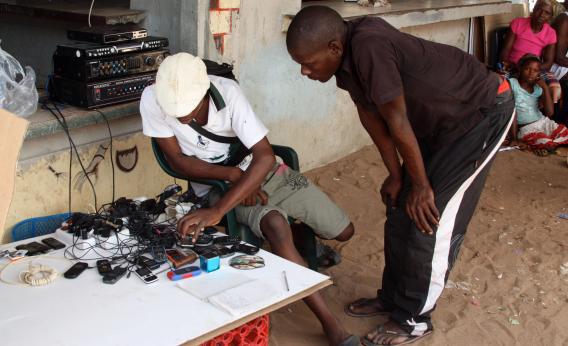I love mocking Silicon Valley utopianism as much as the next guy, and highly recommend Charles Kenny and Justin Sandefur’s cover story in the new issue of Foreign Policy, but a recent round of mockery of Internet-access initiatives by Google and Facebook seems both misguided and condescending toward the people the critics claim to be supporting.
First, Bill Gates—who’s developing quite the sideline in international development punditry—dismissed Google’s plan to use balloons to deliver Internet access to remote and less developed regions in an interview with Bloomberg Businessweek:
When you’re dying of malaria, I suppose you’ll look up and see that balloon, and I’m not sure how it’ll help you. When a kid gets diarrhea, no, there’s no website that relieves that. Certainly I’m a huge believer in the digital revolution. And connecting up primary-health-care centers, connecting up schools, those are good things. But no, those are not, for the really low-income countries, unless you directly say we’re going to do something about malaria.
Over at ZDNet, tech reporter Tom Foremski cheered Gates’ statement and took aim at Mark Zuckerberg’s Internet.org initiative:
A/B testing would save Internet.org a lot of time and trouble if it turns out the poor would rather have a safe place to live, sanitation, schools, clean water, health clinics, electric lights, roads, or food. Not that there’s a choice but in theory, if they had a choice what would they want?
I bet Internet connectivity never comes up in their social conversations. Internet connectivity is nice to have but it’s only useful if you have the other basic things needed for existence.
I’m not interested in defending these particular programs. The balloon thing seems a little far-fetched, and Zuckerberg’s faith in the positive power of connectivity is admittedly over-the-top. But Google and Facebook have proved themselves to be very good at providing people with services over the Internet. Yes, it’s self-serving for them to want to make sure more people have access to these services, but do we really want to be in a position of arguing that these companies shouldn’t make the developing world a business as well as development priority?
Furthermore, these critiques make it sound as if “the poor” are an undifferentiated mass who are concerned with little besides starving and dying of malaria. The majority of the world’s population live in developing countries. Most of them are not starving and don’t have malaria. Many of them would probably like better Internet access.
As author Teju Cole put it in 2011, “Yes, Nigerians struggle with floods or infant mortality. But these same Nigerians also deal with mundane and seemingly luxurious hassles. Connectivity issues on your BlackBerry, cost of car repair, how to sync your iPad, what brand of noodles to buy: Third World problems. All the silly stuff of life doesn’t disappear just because you’re black and live in a poorer country.”
I don’t want to trivialize the problems of malnutrition or malaria, or suggest that wealthy technology executives shouldn’t devote their considerable fortunes—as Gates has—to addressing these problems. But it doesn’t seem that ridiculous for these companies to also focus on what they already know how to do.
No, expanding Internet connectivity is not a Holy Grail, and no, it will not save the world. But it could get more people on the Internet, which is also a good thing.
